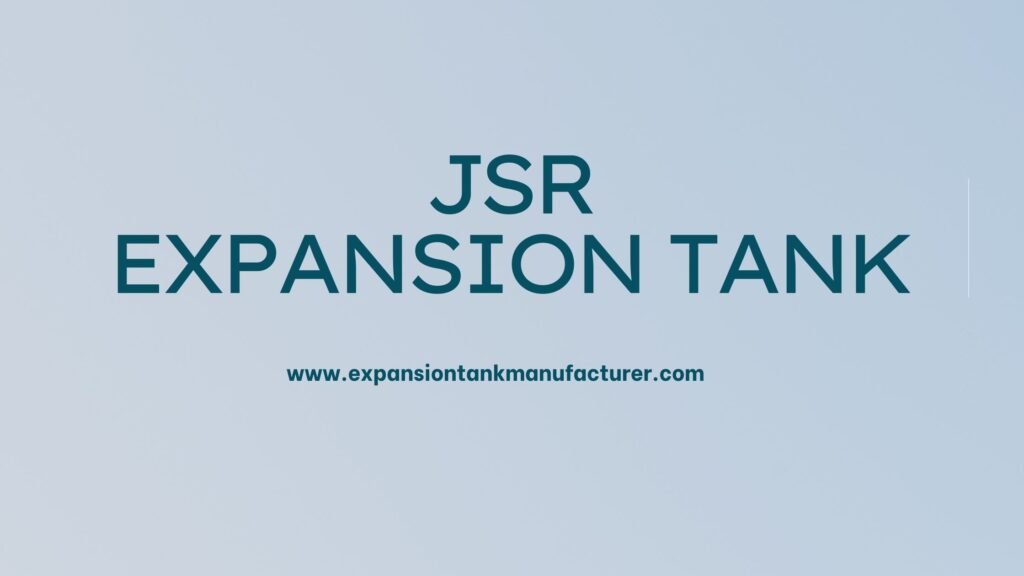Delhi is one of the fastest-developing industrial and residential cities in the world, and maintaining the stable operation of fluid systems in such a scenario is crucial. Among the numerous solutions to this problem, the Air Cushion Tanks are pivotal in regulating pressure fluctuations, shock absorption, and damage prevention within the system. These tanks are integral components of fluid systems applied in industries like water treatment, HVAC, and manufacturing. During this blog, we will discuss the relevance of air cushion tanks in Delhi, the different applications, their benefits, and why they are essential for optimizing fluid system performance.
What Are Air Cushion Tanks?
An air cushion tank is a type of pressure vessel that absorbs pressure variations in a fluid system. The tank holds air or gas as a cushion or buffer to smoothen pressure fluctuations due to system starting, stopping, or fluctuation. When the pressure increases or decreases, the air in the tank compresses or decompresses, respectively, thus maintaining a stable pressure within the system. These tanks are helpful in the prevention of water hammer, system failures, and damage to pipes, valves, and pumps.
In Delhi, where the demand for fluid management is high in sectors like HVAC, water treatment, and manufacturing, air cushion tanks are a crucial part of system efficiency.
Why Air Cushion Tanks are Crucial for Pressure Stability in Delhi?
Delhi’s industries face unique challenges related to pressure stability in their fluid systems. Here are several reasons why air cushion tanks are essential for maintaining optimal pressure and fluid system performance in Delhi.
1. Pressure Fluctuations in Delhi’s Fluid Systems
In Delhi’s urban and industrial infrastructure, pressure fluctuations are common. These fluctuations can be caused by the varying demands for water in residential, commercial, and industrial sectors. In water treatment plants, HVAC systems, and manufacturing industries, inconsistent pressure can cause significant issues, such as equipment damage, inefficient fluid flow, and system breakdowns. Air cushion tanks mitigate these fluctuations by absorbing pressure changes and ensuring smooth, consistent pressure throughout the system.
2. Prevention of Water Hammer in Delhi’s Water Systems
Water hammer is a phenomenon that occurs when the flow of fluid is suddenly stopped or altered, causing a shockwave that can damage pipes, valves, and pumps. In Delhi, where water distribution systems are large and complex, water hammers can be a major issue, leading to costly repairs and operational downtime. Air cushion tanks act as shock absorbers, preventing the occurrence of water hammer by cushioning the impact of sudden pressure changes. This helps ensure the longevity and smooth operation of water systems in Delhi.
3. Energy Efficiency in Fluid Systems
Developing concern for energy efficiency in industries across Delhi has led people to take a serious stance by moving towards saving energy due to increased costs and environmental issues. Air cushion tanks allow fluids being pumped to be more stable in pressure, which enables pumps and valves to pump in a more efficient way, hence keeping the necessary energy needed to pump these fluids low by giving lower utility bills and improving the sustainability of fluids in Delhi.
4. Prevention of Equipment Damage and Downtime
Industrial and municipal systems in Delhi are mainly based on pumps, valves, and pipelines for transporting water, chemicals, or gases. A sudden change in pressure can severely damage these components, which would result in costly repairs and unplanned downtime. The installation of air cushion tanks protects critical equipment from damage caused by pressure spikes and fluctuations, thereby contributing to longer equipment life, reduced maintenance costs, and minimal downtime.
5. Compliance with Standards and Regulations
In Delhi, the industries have to follow various local and international standards to ensure safety and efficiency in fluid systems. These standards often specify pressure stability and pressure variation mitigation. Air cushion tanks are an effective solution that helps businesses meet regulatory requirements by ensuring consistent pressure and preventing pressure-related system failures. These tanks assist industries like water treatment and chemical processing in ensuring compliance with safety standards while optimizing fluid system operations.
Applications of Air Cushion Tanks in Delhi
Air cushion tanks have widespread applications across different industries in Delhi. Below are some of the primary sectors where these tanks are crucial for ensuring pressure stability.
1. Water Treatment Plants
Delhi’s water treatment plants are responsible for providing clean and safe water to the city’s vast population. However, these plants face challenges in maintaining consistent pressure within their systems due to fluctuations in water demand. Air cushion tanks are used in these systems to absorb pressure changes, preventing water hammering and ensuring a steady flow of water. This helps ensure that water treatment processes are efficient and that the infrastructure remains intact.
2. HVAC Systems in Commercial and Industrial Buildings
Inside every HVAC system in most commercial and industrial buildings in the city of Delhi, fluid circulation systems are quite fundamental for these heating and cooling fluids. Stability of pressure also results from the use of air-cushion tanks within the whole HVAC system thus avoiding sudden shock pressure drops/ spikes that lead to damage from pumps and their valves. Through this, comfortable indoor environments guarantee proper heating as well as the overall energy-efficient operations of building heating and cooling.
3. Manufacturing Plants
Delhi has many manufacturing plants that often require complex fluid systems for cooling, lubrication, or chemical processing. Pressure fluctuations in these systems lead to inefficiencies, equipment failures, and safety hazards. Air cushion tanks are used in these plants to absorb pressure changes and prevent system failures. Maintaining stable pressure levels helps ensure the smooth operation of manufacturing processes and reduces downtime.
4. Fire Protection Systems
In fire protection systems in Delhi, constant water pressure is essential for the proper functioning of sprinklers and other firefighting equipment. Air cushion tanks aid in the systems to maintain consistent pressure, so that firefighting systems are always ready for use. The pressure surges get soaked in the tanks, which stabilize the flow, thus making the system apt in emergencies.
5. Chemical and Petrochemical Industries
This reliance is placed on transporting chemicals, oils, as well as a gas with a fluid system. Sometimes changes in the fluid system may occur leading to improper working, accidents due to equipment leakage, etc. An air-cushioned tank prevents fluctuations of pressure resulting from shock variation within it which causes dangerous or harmful conditions for humans, even during hazardous activities, and promotes operational effectiveness by producing stable levels.
Benefits of Using Air Cushion Tanks in Delhi
The installation of air cushion tanks in a Delhi fluid system can provide some benefits, as highlighted below.
1. Improved Pressure Control
The air cushion tanks ensure proper control of fluctuation in the system’s pressure for stable, steady pressure distribution along the system, leading to higher fluid system performance in various industrial operations in Delhi.
2. Cost Savings
Air cushion tank minimizes the cost of maintenance as it prevents damage to equipment and minimizes energy use. In the long term, businesses will save on their maintenance costs, save energy bills, and have longer-lived equipment.
3. Enhanced Safety
Air cushion tanks prevent water hammer and pressure spike issues from arising, thus ensuring safe operation in the fluid systems. This is especially important in the industries that deal with hazardous fluids in Delhi, such as the chemical and petrochemical sectors.
4. Extended Equipment Life
Air cushion tanks help protect vital equipment like pumps, valves, and pipes from damage by stabilizing pressure and absorbing shock waves. This helps in the longer service life of equipment and reduces maintenance costs for businesses in Delhi.
5. Improved System Performance
The consistent pressure offered by air cushion tanks helps to optimize fluid flow, making systems more efficient and effective. From water treatment to HVAC and manufacturing, air cushion tanks ensure fluid systems operate at their best.
Conclusion
In Delhi, an air cushion tank is an ideal solution for maintaining the stability in the fluid system of various industries. Starting from water treatment plants to HVAC systems and manufacturing plants, these tanks offer scores of benefits, including improved system efficiency, enhanced safety, cost saving, and reduced downtime.
By installing air cushion tanks, industries in Delhi can ensure smooth, reliable, and safe fluid system operations, while also contributing to energy efficiency and sustainability. If you are looking to improve the performance of your fluid systems, consider incorporating air cushion tanks into your infrastructure for optimal pressure control.
FAQs
1. What is the function of an air cushion tank?
An air cushion tank helps stabilize pressure fluctuations in fluid systems by absorbing changes in pressure, preventing water hammer, and ensuring consistent fluid flow.
2. Where are air cushion tanks used in Delhi?
Air cushion tanks are used in water treatment plants, HVAC systems, manufacturing plants, fire protection systems, and chemical industries across Delhi.
3. How do air cushion tanks prevent water hammering?
Air cushion tanks absorb the shockwaves created by sudden changes in fluid flow, thereby preventing water hammering and protecting the system from damage.
4. Are air cushion tanks energy-efficient?
Yes, air cushion tanks improve energy efficiency by maintaining stable pressure levels, reducing the need for excessive energy to pump fluids.
5. Can air cushion tanks help with system maintenance?
Yes, air cushion tanks reduce wear and tear on system components by absorbing pressure surges, which extends the life of equipment and reduces maintenance needs.




